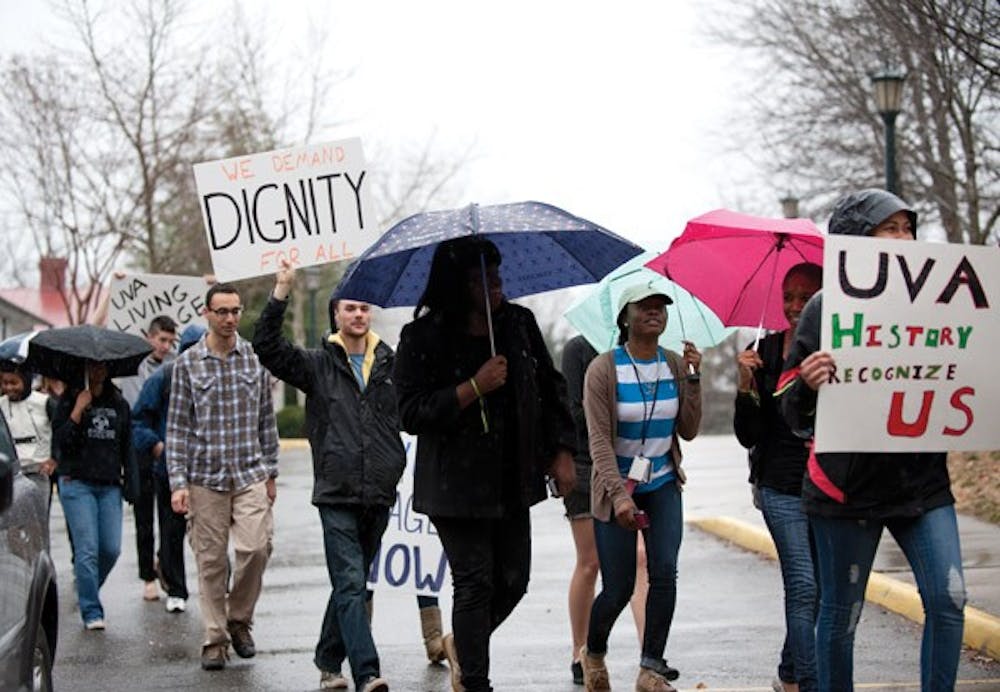About 40 students gathered at the Office of African-American Affairs Monday to execute another march rallying to increase personnel salaries as well as to garner financial support for African-American studies. This event followed Friday's march for a living wage, which occurred during the Board of Visitors meeting.
The goals of Monday's march, sponsored by the Black Student Alliance, were similar to those of the one held by Workers and Students United Friday, but BSA President Sarajanee Davis said she believes the organization's own event had distinct benefits.
Participants in Monday's march wanted to incorporate funding for the Carter G. Woodson Institute as an integral issue, Davis said. The center is not self-sustaining, and the lack of funding threatens the existence of African-American studies at the University, she said.
Fourth-year College student Greg Casar, member of the Workers and Students United, said BSA also wanted to explicitly link black issues to wage issues, arguing they are intricately intertwined.
"It is no secret that the vast majority [of people who] are affected [by low wages] are people of color and women," he said.
In fall 2008 only 3.7 percent of the University's faculty were black, compared to 53.4 percent of the service and maintenance workers, according to the most recent statistics released by the University.
"These two statistics have remained virtually unchanged in the past 15 years," he said, comparing the figures to statistics from 1993.
Support for implementing a living wage for University employees has existed since the civil rights era, Casar said. Recently this support has increased as more students become involved by listening to the stories of full-time employees who use homeless shelters and soup kitchens, he said.
Both Casar and Davis said they recognize the economic restraints the University faces, making it difficult for the administration to make any promises about implementing a living wage. Casar said WASU research shows the University pays its employees less than almost every other similarly ranked university in the nation.
University administrators recognize the student activism but do not seem prepared to make any immediate changes.
"I appreciate the students' show of concern for our employees," said Susan Carkeek, vice president and chief human resources officer. "I think we have that in common, but I'm not sure the march accomplishes anything."
Carkeek noted the lack of financial support provided by the march.
"It doesn't raise money," she said. "It doesn't help us with budget decisions we have to make."
Carkeek added the University has faced budget cuts during the last three years, amounting to a 30 percent total cut. She also noted the University is facing another $12 million cut next year.
"My concern is to hold on to the jobs we have," Carkeek said. "We're not in a position to be doing any salary increases. As soon as we are able, salary increases will be a high priority"







